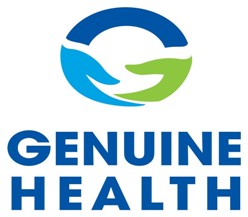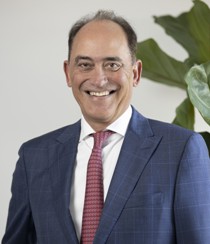











 -
-
 Joe Caruncho
Joe Caruncho
CEO
Genuine Health Group
Https://www.genuinehealthgroup.com/
Contact:
786.878.5500
Interview conducted by:
Lynn Fosse, Senior Editor
CEOCFO Magazine
Published – April 17, 2023
CEOCFO: Mr. Caruncho, one of the first things on the Genuine Health website is “Better Care, Good Business.” What does that mean at Genuine Health?
Mr. Caruncho: The idea of what we do at Genuine is based on an incredible new trend -
If you are a physician, you can do better financially by taking better care of your patient to keep them healthy, instead of just the volume of service.
CEOCFO: Do physicians recognize the business side as well as the personal care side?
Mr. Caruncho: I think it is still a process that is transitioning. For example, South Florida and some other areas are much more advanced than other parts of the country in terms of all of this because we were the frontier for managed care. Even within a mature market like south Florida, more and more physicians recognize that they have to move to value-
Many of them are still focused on providing services to earn certain amounts and still shy away from some of the things you must do to succeed in value-
CEOCFO: Are patients demanding a different model of care or does it not matter to most patients?
Mr. Caruncho: I think that is a generational issue. The younger patients, because of the internet, have become more savvy or more informed in terms of options. They are also more demanding customer service, which has been hit or miss among physician practices. By and large, the Medicare members and seniors that we focus on still trust the physician, and do not question if they need this or that test and follow the physician's lead. The younger ones are more apt to ask questions and challenge.
CEOCFO: We spoke about a year ago; what has changed in 2022 for Genuine Health? What progress have you made?
Mr. Caruncho: It has been a very challenging year. In September of 2021, we raised $160 million in investor capital. That was the first time that we raised money for the company. We were self-
We were hoping COVID was gone in terms of direct cost. From the beginning of 2022, it was especially challenging from a COVID standpoint. We experienced a spike in COVID costs, and then we were trying to identify the patients who deferred care. Because of COVID, they did not want to go to a physician's office, so they did not keep up with their screenings or monitoring of health conditions and are now permanently in a worse condition from whatever their illness is. It continues to be a challenge to identify those patients and get them to see the appropriate physician to stabilize or improve them. Those few areas were a dominant focus.
CEOCFO: Are you looking at additional acquisitions?
Mr. Caruncho: Yes, we are. We view acquisitions as accelerators. An acquisition in a market that we want to move into gives us a foothold there and allows for expansion. That would be one example, and the other is, if there is a gap somewhere, an acquisition may allow us to acquire infrastructure or skillset. We are in the process of making a small acquisition on a technology platform to supplement what we are doing internally. Instead of building it, we just acquire it and then incorporate it into our processes.
We are looking at several now, and we are looking to move out of state this year to two or three different markets. Within those markets, we have been looking to see if there is any potential acquisition that would accelerate our movement to that market. If we find one, it comes with a team that knows that market instead of having to hire and start from scratch.
CEOCFO: Why is now the right time to expand?
Mr. Caruncho: I think it is just the progression. We have grown quickly since I started the company over five years ago. For the first three years we were building the plane while we flew it. Once the plane was built, we could accelerate growth through acquisitions. Now that we integrated these three companies, we think that we are in a much better place to expand, grow, and manage that growth.
For 2023, we will aim to grow outside of South Florida to central Florida, and perhaps parts of northern Florida, and then expand to two other states. We are looking at Texas and South Carolina as two markets in which we could potentially succeed.
CEOCFO: When a medical practice works with Genuine, is it all or nothing? Would you give us an idea of a typical engagement?
Mr. Caruncho: One of the things we tell physicians and investors when we raise capital is that we do not have a one-
There are others who are more comfortable or have a higher tolerance for sharing risk, and then we will move straight to that. We hope that as they work with us and learn that this is achievable, and they learn of the upside potential, they will move further along that progression to more value-
CEOCFO: Are there particular areas in general that doctors will make a change with or does it vary by practice?
Mr. Caruncho: For example, one of the things that has gotten attention recently is on what is called "risk adjustment on revenue." Medicare, for example, wants to know if Medicare patients have any of the conditions that they have listed in categories, and they want the doctors to code those. That can have a huge impact. If you code them correctly, Medicare says, "OK, your patient is sicker, so we will pay you more money." Doctors are not used to doing that; they are used to just putting down the minimum code, whatever it took to get paid when they are getting paid fee-
The other one that they do that changes behavior pretty readily is that they do not know the vast differences between contracts of different facilities. Many times, the same radiologist has multiple locations, and the one in the hospital can cost five times as much as the independent center across the street. It is the same equipment and quality, but it is just because of the structure of contracts.
When you share those things with physicians, they have a “wow” moment. They might be referring to different specialists for years, and we ask them if they think the physicians are equal. We show them the difference every time you send a patient to one versus another, what we call "high-
CEOCFO: Are doctors still undervaluing coding, and can you help them see how it makes a difference?
Mr. Caruncho: The hesitancy on coding a lot of times is based not on any objection to coding; it is that they do not know what things they should code, and they do not have the processes in place to make that easy. The physicians are running from exam room to exam room, and unless you make it easier for them, they do not have the time to focus on it. We have our own coders that will go in and do chart reviews on all their charts, and if a patient, for example, is coming in next Tuesday, we will put possible conditions inside the notes to the electronic medical records to check for while the patient is there.
When the doctor brings up the medical record during the visit, he can go ahead and say yes or no, and if it is appropriate, the doctor can code it right there and capture it while the patient is in the office. This makes it more effective.
We also follow up to ensure that what was put in the medical record supports the code before submitting it. They call it in the industry a pre-
CEOCFO: Are you seeking additional funding as you grow and expand?
Mr. Caruncho: We are not raising capital now, but we are looking into credit facilities. We also constantly meet with investors. We are not actively raising, but as they say about capital, you never wait until you need it to try to raise it. Just keep those relationships in place.
CEOCFO: Why is Genuine Health Group important?
Mr. Caruncho: It is important to both patients and our physician partners. As a result of what we do, patients receive better care and better follow-
We think we are providing a service for the physicians as well. We make them better. We make their practices more efficient, and they have more time to care for their patients if they do this correctly because they are not chasing volume. They just focus on their patients' needs.
I always question my team if we still have a reason to exist, if we are adding value and making a difference, or if we are just shuffling paper. I think we do, and I am proud of what we are doing.
Genuine Health Group | Joe Caruncho | Accountable Care Organizations Miami | Value Based Care Organizations Miami | Genuine Health Group – Helping Physicians Provide Value-